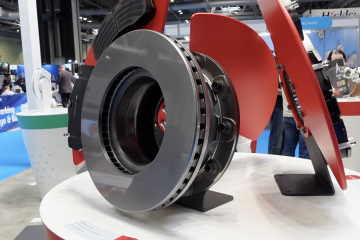Parliament has opened for its new session, with the King’s Speech giving an overview of the policies and bills that the new government will be looking to enact in the months to come.
The speech included several areas that would impact the automotive industry, although there were no motoring-specific bills discussed. This means the plans for re-instating the 2030 ban on new petrol and diesel model sales remains in limbo, something that will cause more disruption for the wider market. There was also a lack of discussion on the planned Clean Air Bill.
Skills in the King’s Speech
For the aftermarket, the biggest announcement int he King’s Speech was the establishment of Skills England, as well as reforms to the apprenticeship levy.
“Whilst there were no specific mentions of automotive in the King’s Speech, we are pleased to see the focus on skills with the proposed creation of Skills England, bringing together government, businesses, unions and training providers,” commented Kevin Finn, Executive Chair of the IMI. “With 21,000 vacancies and critical skill gaps in EVs and ADAS, urgent support is needed to maintain road safety and meet government goals.
“The IMI will also represent the views of the automotive workforce and employers as the Apprenticeship Levy is reformed with a Growth and Skills Levy. It is hoped this will give businesses the flexibility they need to spend their levy funds to deliver apprenticeship programmes as well as access modular training to equip existing staff with future-proofed skills. Currently, the automotive training workforce is severely under-resourced, and the pipeline of new talent is not being adequately filled by new apprenticeships.
“The government has clearly indicated its intent to work with business as well as create a Council of Nations to secure economic growth across the country. The IMI will therefore, work with the relevant ministers and departments to represent the automotive sector to ensure UK automotive remains a global leader.”
The ability to develop skills, working with employers and training providers, is an important step for the aftermarket. With a need for the next generation to come in and help the industry reach its full potential, it must be hoped that bringing groups involved in the development of skills together will further this area, something that needs to evolve.
Employment rights
Another important announcement in the King’s Speech was the Employment Rights Bill, which will seek to ban exploitive practices and enhance employment rights.
Responding to the King’s Speech, Stuart James, CEO of the Independent Garage Association (IGA) stated: “We welcome the government’s focus on economic stability and its recognition of the important role that small and medium-sized enterprises (SMEs) such as Independent Garages play in the UK economy.”
“The creation of Skills England and the reforms to the apprenticeship levy as announced in the King’s Speech are particularly important for our sector. We are eager to continue our discussions with the new government, hoping to advance positive changes and support for our industry.”
“The Employment Rights Bill’s plans to ban exploitative practices and enhance employment rights are significant. The IGA is ready to work with the government to ensure these measures effectively support both employers and employees in our sector. Together, we can create a thriving environment where independent garages continue to grow and contribute to the wealth and stability of communities across the UK.”
The IGA added that it remains dedicated to supporting independent garages and ensuring they have the resources needed to adapt to the changing economic landscape. The body will continue to engage with policymakers to ensure the independent garage sector’s voice is heard and considered.
The missing element
Whilst not aftermarket specific, the lack of any announcement in the King’s Speech on the government’s plans for 2030 is a concern to the automotive industry. The date of the petrol and diesel new-car ban was pushed back to 2035 in September last year, giving carmakers more time to develop their model ranges, while bringing the date in line with the rest of Europe.
Any delay will hamper carmakers, who often plan their model releases up to five years in advance. While the zero-emission mandate means that currently, 80% of sales in 2030 must come from battery-electric or hydrogen vehicles, a blanket ban on petrol and diesel would disrupt their plans.
Yet the aftermarket could benefit from this confusion. Some carmakers may choose to accelerate their all-electric plans to ensure they are not caught out by any changes to the current UK legislation. This would mean consumers for whom electric vehicles do not suit their driving requirements would hold on to their cars for longer, a move that is always beneficial for the independent sector.



